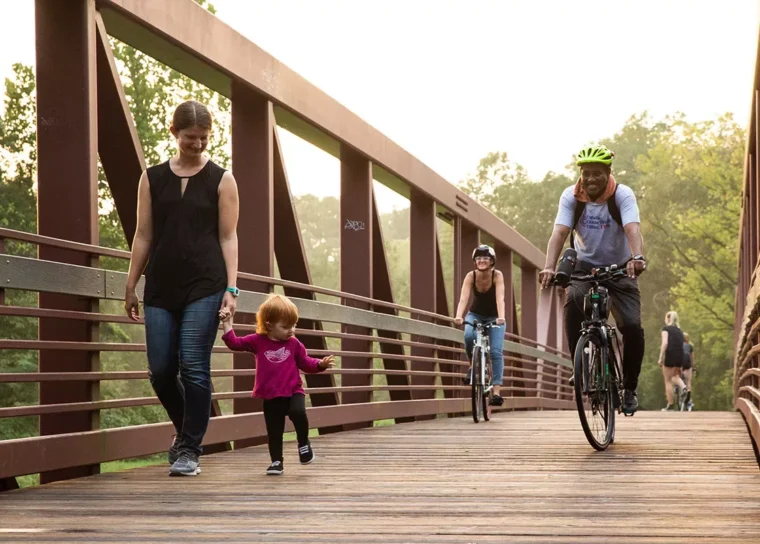
The city of Jacksonville, Florida, will use $147 million to reconnect 14 disadvantaged neighborhoods via an approximately 30-mile trail. Plans include building five trail segments to connect and expand the existing trail and park system. The total project cost is $183.9 million.
The U.S. Department of Transportation (USDOT) recently provided the funds through the Neighborhood Access and Equity (NAE) grant program to begin the Emerald Trail project. Out of the five trail segments receiving funds, the Hogan Street segment will begin construction in mid-2024. Hogans Creek is in design and will begin construction 2026. McCoys Creek is in various stages of design and construction.
The NAE program is designed to improve walkability, safety and affordable transportation access in disenfranchised communities. The Emerald Trail is one of 132 projects that will receive a portion of the $3.3 billion USDOT awarded for Fiscal Year 2023.
Interstate highways I-95 and I-10 currently split underserved Jacksonville communities, providing residents with few safe multimodal alternatives to access critical amenities. The limited pedestrian access to essential services makes Jacksonville one of the top 10 cities in the United States for pedestrian and bicycle fatalities.
The city will use the funds to build 15 miles of trails to expand the existing 34-mile, off-street bike and pedestrian trail and linear park system. Once finished, the trail will link 16 schools, 21 parks, two colleges and three hospitals. The system will also provide access to additional nearby restaurants, businesses, retail, schools and parks.
Currently, 40% of the trail is in design, under construction or completed. The city is using the Emerald Trail Master Plan, developed in 2021, to guide the project. The Emerald Trail is estimated to be finished by 2029.
Photo courtesy of the Rails to Trails Conservatory
The post Jacksonville using federal funds to reconnect disadvantaged communities appeared first on Government Market News.
